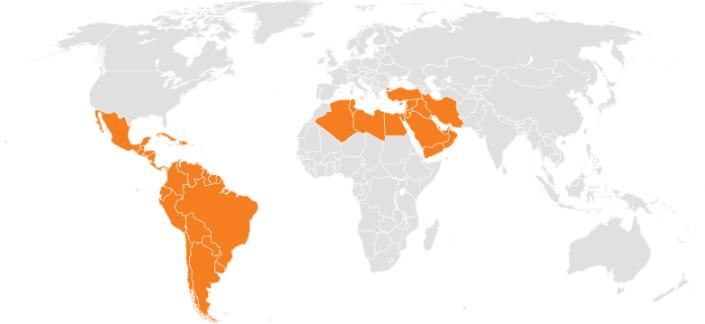Navigating societies in transition
Last week, Chr. Michelsen Intitute (CMI) was granted 11, 567 million NOK from the Ministry of Foreign Affairs for a project on the role of military-civilian relations in Latin America and the Middle East. The project “Everyday Maneuvers: Military – Civilian Relations in Latin America and the Middle East” will span over three years, with concrete outputs in form of case studies and desk studies pegged to each year.
-We will draw on the Latin American experience to analyse military-civilian relations in the current transitions in the Middle East. These are issues of particular importance to Norwegian foreign policy. The project is a response to Norway’s long engagement in the Middle East as well as the MFA’s Brazil strategy, says Nefissa Naguib, project leader and senior researcher at Chr. Michelsen Institute.
Close links to research partners in Brazil
Researchers from CMI will cooperate with partners at the University of Brasilia and research partners elsewhere in Latin America and the Middle East, as well as researchers from PRIO and NUPI. The close collaboration with the University of Brasilia is one of the main pillars of the project.
-Our research partners in Brazil are very keen to build expertise on the Middle East. Brazil has a large Middle Eastern diaspora. The descendents of people who fled from assault and battery are now coming of age as students and researchers. They are eager to broaden their knowledge of the region where their parents and grandparents were born. Brazil’s interest in the Middle East is also connected to several Egyptian politicians’ ambitions to adopt the Brazilian model for development and growth, says Naguib.
The ideology of military presence
The presence of military forces has been an arresting feature of many countries in the Middle East ever since the 1950’s. The region has been dominated by autocratic regimes with vast military forces at their disposal. The popular uprisings, starting in December 2010, shook this political order, and the armed forces have responded to the uprisings in different ways. According to Naguib, the current situation provides researchers with a perfect timing for analysing the role of the military not only in moments of confrontation, but also in the long-term processes of negotiation and power struggle between civilian and military forces.
-A comparison with the Latin American experience is highly relevant, as armed forces have played a central part in the struggles towards democracy in this region. It was not until the 1980’s and 1990’s that political authority was ceded to civilian leaders, and even today the enforcement of civilian control over the military remains a challenge to democratic state-building in several Latin American countries, says Naguib.
The comparison between the Middle Eastern and Latin American experience will provide new insights into the relations between the military forces and civil society. Traditionally, research on the role of military forces has focused on structural matters. The social and political role of the military has been neglected.
-There is an urgent need for new knowledge on the cultural and ideological aspects that inform military-civilian relations in various countries. We also need to re-think past assumptions about military-civilian relations in the Middle East. Can we find differences in cultural values and ideological dispositions between military officers of different generations? Can we find different characteristics of gender, class and ethnicity within the military of both regions? How is this reflected in the military’s attitude towards democratic reforms? “Everyday maneuvers” will delve into these questions, says Naguib.



